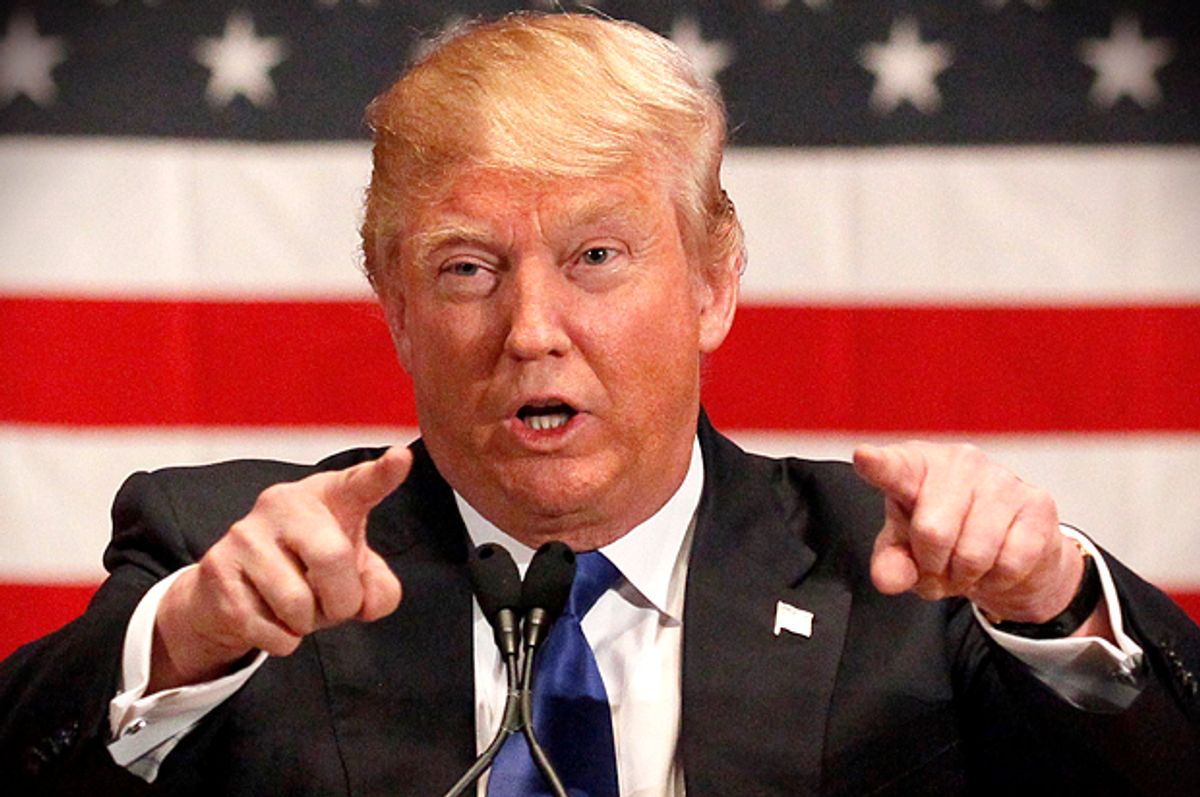The importance of the Iowa caucuses is often overstated. Political media spends an inordinate amount of time talking about Iowa because it's first, and because the candidates themselves spent most of their time there. The coverage is typically overblown, though. In 2012, Rick Santorum won in Iowa, followed closely by Mitt Romney and Ron Paul. In 2008, Mike Huckabee won easily in Iowa. But neither Santorum nor Huckabee lasted very long after their early victories; it earned them some headlines and perhaps a few more donations, but that's about it.
This year feels different, however. The dynamics on the Republican side are such that a Trump victory in Iowa on Monday, which is more than possible, could dramatically impact the race. And Republicans, including Ted Cruz, are terrified about that. Politico spoke with several GOP operatives last week and their comments reflect a growing concern within the party.
“If Trump wins in Iowa,” said Mike McSherry, a GOP consultant and former executive director of the Republican Governors' Association, “I don't know how you'd stop him. All these guys are going to be chewing each other's throats out for second place.” An anonymous staffer of another Republican candidate warned: “If Donald Trump wins Iowa, I think he has won – period. Ted Cruz is supposed to win Iowa. If Trump wins, he'll be on a trajectory to come out of the SEC primaries [March 1] with close to triple the delegates of anyone else.”
Ted Cruz's entire pitch to Iowa voters is now basically vote for me or Trump is our nominee. “If Donald wins Iowa,” he told a supporter recently in Des Moines, “he right now has a substantial lead in New Hampshire [the second primary]; if he went on to win New Hampshire as well, there is a very good chance he could be unstoppable and be our nominee.”
It's hard to argue with the math or logic here. The map sets up perfectly for Trump, particularly if he pulls off a coup in Iowa, a state that traditionally favors more socially conservative candidates. If any primary voters are still unsure about Trump's long-term viability, a win in Iowa would remove all doubt.
The so-called establishment candidates are panicking as well. Trump has held a double-digit lead in New Hampshire for months, and he still leads Kasich 31 to 12 in the latest polls. If Kasich finishes second in New Hampshire, that only complicates things in the GOP establishment lane. Kasich has no chance of winning the nomination (he's not even carrying his home state of Ohio). Someone like Rubio — or Jeb Bush — needs a strong showing in New Hampshire to blunt Trump's momentum and convince voters he's a credible alternative to Trump. Which is why a Trump victory in Iowa could effectively end the race: Rubio may be the only non-outsider candidate who can unite enough wings of the party to stop Trump. If he loses handily in Iowa and New Hampshire, his electability argument starts to fall apart. And with Cruz failing in Iowa, where he's invested so much of his resources, Trump's path to the nomination looks wide open.
So this is where things stand on the Republican side. A Trump upset in Iowa will almost certainly be followed by a landslide victory in New Hampshire. Next up is South Carolina and Nevada, where Trump is – and has long been – comfortably atop the polls. It's no wonder Republicans are beginning to accept the inevitability of Trump. At this point, there's not much else the other candidates can do, in terms of strategy and tactics. The attack ads have aired, Trump has offended damn near every demographic in the country, including minorities, Veterans and women, and none of it has mattered. He even skipped a debate because he can, because he's above the process. Frankly, he's already unstoppable.
A win in Iowa will just shatter whatever hope establishment Republicans still have that Trump will disappear.

Shares